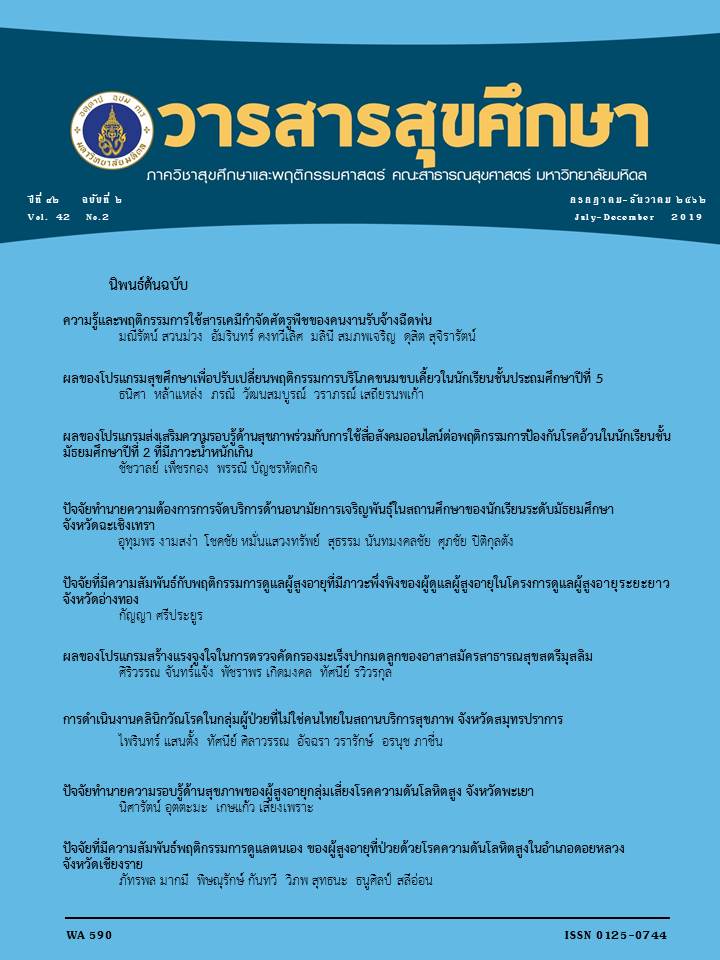The Effectiveness of Life Skills Development Program for Smoking Prevention among 5th Grade Students In Bangkok Metropolis
Keywords:
Program Effectiveness, Life Skills Development, Smoking PreventionAbstract
This two group quasi-experimental research aimed to study the effectiveness of life skill development program for smoking prevention among5th grade students in two elementary school in Bangkok Metropolis. 64 samples were divided into two groups, 35 students were the experimental group and 29 students were the comparison group. The comparison group received the regular teaching and learning activities while the experimental group received the health education program applying four life skills: 1) self-awareness and self-esteem; 2) critical thinking skills; 3) decision making and problem solving skills; and 4) refusal skills. The skill development activities composed of four sessions of health education activities in 4 weeks with 60 minute-session each. Data collection was done before and after
the experimentation and the follow-up period using a questionnaires and interview the instructors. Data analysis was done using descriptive statistics: frequency, percentage and arithmetic mean, and analytical statistics: Chi-square, Independent t-test, Repeated Measure ANOVA and Paired t-test.
The results of mean difference before, after the experimentation, and follow up period showed that the experimental group had significant different mean scores of self-awareness and self-esteem, critical thinking skills for smoking prevention, and decision making and problem solving skills for smoking prevention (p<0.001, p=0.004 and p<0.001, respectively), except refusal skills for smoking prevention that was not different (p=0.147). For comparison group, there were not different of mean scores of
self-awareness and self-esteem, critical thinking skills for smoking prevention, and refusal skills for smoking prevention (p>0.05), except problem solving skills for smoking prevention that was different significantly (p=0.004). Moreover, the findings showed that the four life skills among the experimental group were found to be significantly higher than the comparison group (p<0.05). Thus, schools should apply this life skill development program for smoking prevention in classroom learning and teaching activities in order to prevent students from smoking.



